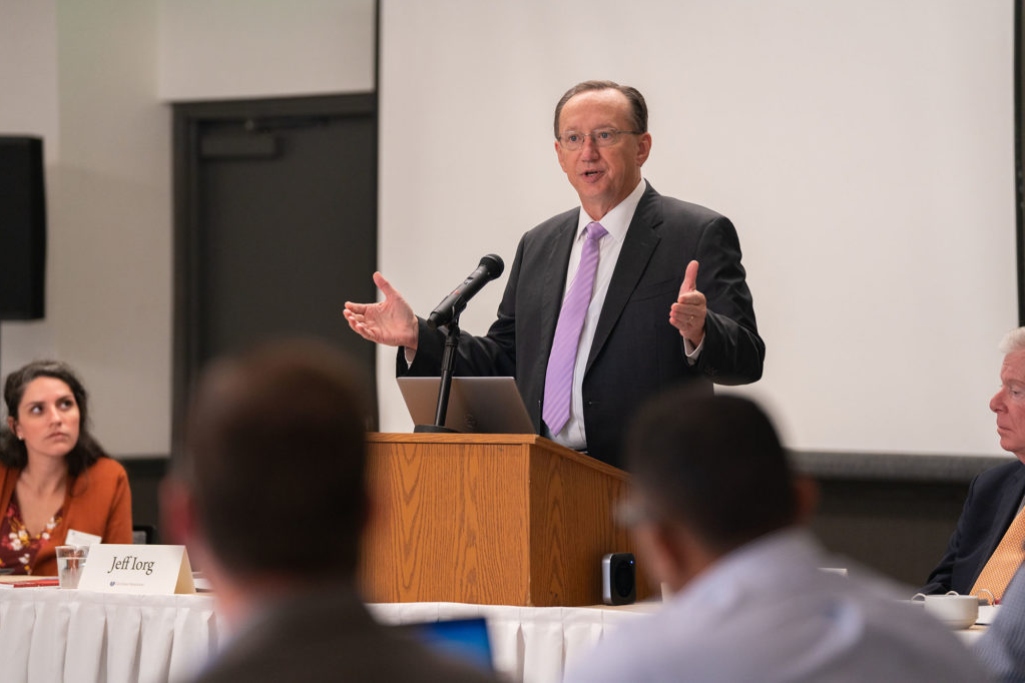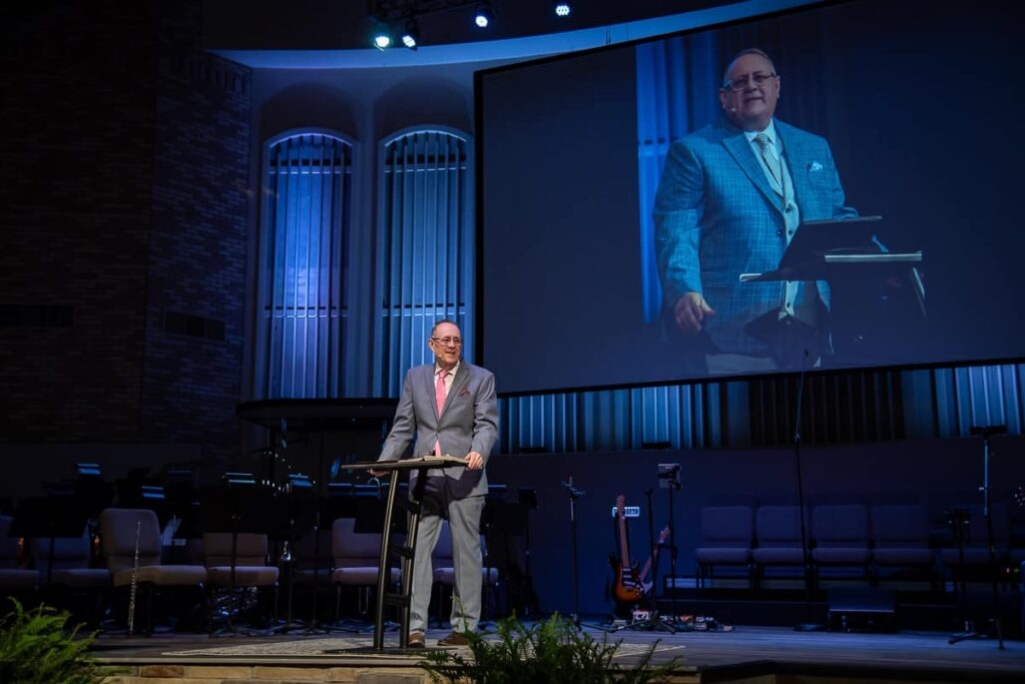
NASHVILLE (BP) – Strategic changes could be afoot at the SBC Executive Committee (EC) during Jeff Iorg’s first 100 days as president if his latest podcast episode is any indication.
Iorg’s focus in an April 28 episode of his “Lead On” podcast was “starting well in a new ministry position.” In the 30-minute discussion, he reflected on his transition from the presidency of Gateway Seminary to the EC, where he will begin serving as president May 13.
“Make changes at the right pace,” Iorg told ministry leaders. If “you are moving into a crisis situation” with “upheaval or difficulty, maybe even a leadership crisis of some kind that’s even made it possible for the position to be offered to you … you may need to come in with more aggressive change because people are actually clamoring for it or desperate for it.”
Iorg’s Executive Committee presidency will follow a succession of leadership challenges for the EC, including the resignation of former president Ronnie Floyd, a presidential candidate who wasn’t elected, an interim president who falsified his resume and a presidential finalist who withdrew his name from consideration. The EC also faces financial reserves that fell from $13 million to $4 million in two years amid implementation of sexual abuse reforms.
Iorg has developed a two-page to-do list for his first 100 days in office, he said. While he opted not to share details of the list, he noted general categories of work he plans to tackle: “staff relationships,” “SBC committees,” “SBC meeting in Indianapolis,” “key contacts,” “general personal areas,” “strategic problem areas,” “legal issue areas” and “speeches and presentations.”
“I’m not going to go into the details on the podcast about what I’m going to do in each one of these categories,” he said, “for several reasons: One, I don’t want to publicly commit to things that I may not completely fulfill, and two, some of this is in process and remains flexible.”
Yet he did share some hints of his first steps in office. Staff issues will draw focus because “we’re understaffed,” Iorg said of the EC. “I have a list of 7-8 things I want to do in the first hundred days to get off to the best start possible with the new staff.” “General personal areas” to address include tasks like securing housing and an automobile for himself as he relocates to Nashville.
“As I was making my list of the things that I wanted to do, there were several things that got put on the original list that ultimately got taken off,” Iorg said, “because I realized those things might be important, but they’re not really that strategic.”
Among Iorg’s advice for all ministry leaders starting new positions:
- “Make relational connections.” At Iorg’s first church, he visited members’ houses for two hours each night upon his arrival. When he became executive director of the Northwest Baptist Convention, he met one on one with each convention employee. At Gateway, he had a 90-minute meeting with each faculty member.
- “Listen wisely and intently to what people are telling you.” Among a new leader’s priorities should be identifying “manipulators,” who may be seeking support for unwise agendas, and “quiet influencers,” who affect the direction of an organization yet are humble and unassuming.
- “Pace yourself.” That includes making time for family and making healthy choices. Iorg has blocked out specific days for family in 2024 and 2025. He has “already been struggling” with sleep and exercise as EC president-elect. “Every few days I’ve had to remind myself to stop and make sure I get a good night’s sleep.”
Iorg’s 100-day plan isn’t set in stone, he noted, but it will set a trajectory for long-term success.
“There are going to be things that come up and distract me from this plan,” he said. “I’m OK with that. There are going to be some things come up that aren’t on the plan that I’m going to need to add to it. I’m OK with that. There are some things on this plan that I’m going to decide, ‘You know what? That was a bad idea. I’m just not doing that.’ But about 80-85 percent of this plan I am going to accomplish.”
(EDITOR’S NOTE – David Roach is a writer in Mobile, Ala.)


